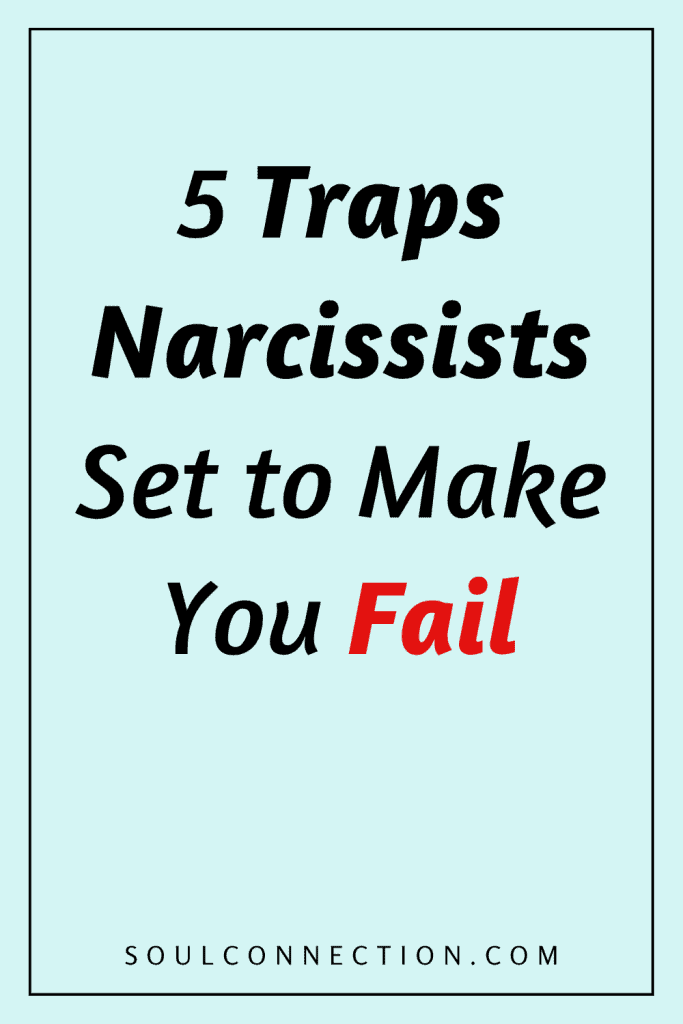Ever felt like you’re playing a game with rules that keep changing, only to realize you never even agreed to play? Welcome to life with a narcissist.
These experts in emotional sleight-of-hand have a way of turning the simple act of existing into an Olympic event—where you’re wearing clown shoes, and they’re the only judge.
Far from being masters of subtlety, narcissists tend to recycle the same manipulative tricks. Recognizing these traps isn’t just self-defense; it’s self-care with a dash of sanity preservation.
Time to call out the five classics—and figure out how to sidestep them before you find yourself apologizing for breathing too loudly.
1. The Moving Goalpost Game
Narcissists are Olympic-level goalpost movers. Just when you think you’ve ticked every box, the boxes skedaddle to a new zip code.
It starts innocently enough: maybe you’re told that if you just try harder, be more understanding, cook their favorite meal, or learn Portuguese overnight, everything will be fine. So you do it. But “fine” never arrives.
There’s always a new expectation or a higher standard dangled just out of reach.
The point isn’t really your improvement. It’s about keeping you on a treadmill of proving yourself—always striving, never arriving. This way, they maintain power and keep you feeling “almost good enough,” but never quite there.
What helps:
Call out the moving target. Nail down specifics when expectations are set: “What does ‘being more supportive’ mean, exactly?” Get it in writing if you have to (text messages are a narcissist’s kryptonite).
When the goalpost shifts, point it out—calmly, with receipts. Don’t set yourself on fire trying to keep someone else warm.
2. The Blame Boomerang
Ever been blamed for something that wouldn’t touch you with a ten-foot pole? Narcissists have a talent for flinging blame like it’s a competitive sport. If something goes wrong—rain, burnt toast, their own bad mood—it’s apparently your fault.
This trick works because it keeps you on the defensive. If you’re always apologizing, you’re never questioning why the conversation started in the first place. It’s exhausting, confusing, and often, downright absurd.
What helps:
Stop catching the blame boomerang. When confronted with these accusations, ask for specifics. “Can you help me understand how I caused the traffic jam on I-95?”
Sometimes, just a little incredulity and humor can expose the absurdity. Don’t accept guilt that’s not yours. If you need to, walk away from circular arguments—some things aren’t worth your peace.
3. Gaslighting on Repeat
Gaslighting isn’t just a buzzword—it’s the narcissist’s greatest party trick. This is where you’re told your memory is faulty, your feelings are silly, or things that happened never actually happened.
Picture this: you bring up an issue, and suddenly you’re being “too sensitive” or “making things up.” You start doubting your own reality, wondering if you’ve lost the plot.
Spoiler: you haven’t. You’re just being professionally confused.
What helps:
Hold tight to your version of reality. Keep notes, texts, or journals if things start feeling surreal. When your memory is questioned, calmly stand by it: “I remember it differently.”
You don’t have to win the argument, but you do get to trust your own experience. Gaslighting loses power when the target refuses to question their sanity.
4. Love Bombing and Punishment Cycles
Narcissists are experts in the “hot and cold” routine. One minute, you’re being showered with affection, gifts, and over-the-top praise; the next, you’re in the deep freeze for some imaginary offense.
This isn’t love. It’s emotional yo-yoing designed to keep you off balance and hooked on crumbs of approval.
The initial rush feels intoxicating—who wouldn’t want to be adored? But those highs are always followed by lows, engineered to make you desperate to get back in their good graces. It’s addictive, anxiety-inducing, and totally intentional.
What helps:
Notice the pattern. Is affection conditional? Are you only “good enough” when you serve their needs? Recognizing that this isn’t actually about you (or your worth) is half the battle.
When you see the cycle, you can step off the ride—no more chasing after fleeting approval.
5. Triangulation and Divide-and-Conquer
If you thought relationships were complicated before, wait until a narcissist starts inviting everyone—including their third cousin’s hairdresser—into your business.
Triangulation involves bringing a third party into conflicts, whether it’s comparing you to an ex, turning friends against you, or recruiting family members as “witnesses” to your supposed failings.
Suddenly, you’re not just dealing with one person’s criticisms—now you have a chorus. The goal? Isolate you, undermine your confidence, and keep you feeling like the only reasonable response is to give up and let them win.
What helps:
Refuse to play along. If someone else is dragged into your conflict, keep discussions private. Resist the urge to defend yourself to everyone within earshot—narcissists thrive on drama and confusion.
Set boundaries: “I’d like to keep our issues between us.” Healthy relationships don’t need an audience.
Why None of This Is Your Fault
Living with—or loving—a narcissist can feel like being dropped in the middle of a maze with invisible walls. These traps are not proof of your inadequacy or lack of trying.
They’re well-worn tools, honed over years, and used on anyone who gets close.
Spotting these games is a sign that your internal GPS is working just fine. You’re not “overthinking.” You’re seeing patterns.
That’s the first step out of the trap—and toward relationships that don’t require you to be a contortionist just to keep the peace.
No need to be perfect, psychic, or superhuman. Being awake to these tactics is more than enough.
And if all else fails, there’s always the time-honored tradition of picturing the narcissist in clown shoes. Works wonders for perspective.


